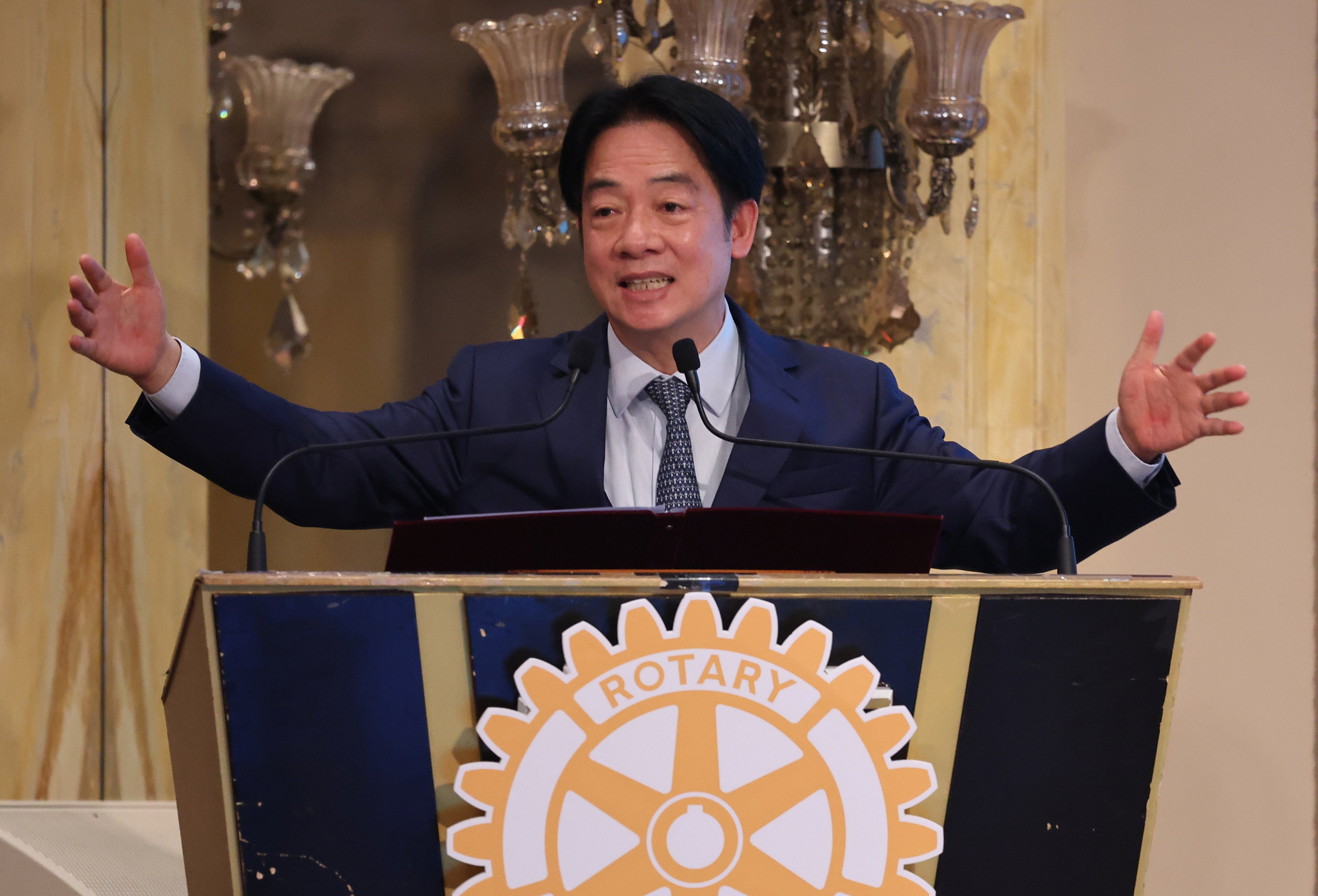Recent comments by Taiwanese leader William Lai Ching-te about “removing impurities” through democratic processes have triggered a fierce backlash on the island, with critics accusing him of authoritarian tendencies and attempting to divide Taiwan under the guise of unity.
Delivering the second of his “10 Talks on Uniting the Country” series on Tuesday, Lai described Taiwan’s democratic progress as akin to forging steel. “Hammer after hammer, tempered into steel, all impurities removed – until all that is left is an iron will to defend our sovereignty and safeguard our democracy,” he said.
He added that democracy was secured “through continuous elections and recall votes, through every single ballot cast”.
Opposition lawmakers were quick to condemn his remarks, calling them a veiled attempt to justify purging dissent and pushing forward the efforts of Lai’s ruling Democratic Progressive Party (DPP) to recall dozens of main opposition Kuomintang (KMT) legislators on July 26.
KMT chairman Eric Chu Li-luan described Lai’s speech as “a blatant attempt at political purification”, akin to those seen in authoritarian regimes.
“The idea of removing political impurities echoes the kind of extreme ideological purity seen in North Korea today,” he said, calling on the people of Taiwan to reject Lai’s “dictatorship” by voting against the recalls.
Taipei mayor Wayne Chiang Wan-an, also from the KMT, said democracy must accommodate differing views, adding: “No one should ever be labelled an impurity, let alone be told they should be removed.”
KMT legislators Wang Hung-wei and Lai Shyh-bao also criticised the rhetoric used. Wang said the speech was divisive and unbecoming of a top leader elected with just over 40 per cent of the vote. “To brand those who did not support him as impurities shows a lack of democratic maturity,” she said, while her colleague Lai warned that the remarks reflected a broader effort to marginalise opposition forces. “Lai [Ching-te] wants to eliminate dissent and turn the legislature into a rubber-stamp body,” he said.
The controversy stems from the Central Election Commission’s recent approval of recall petitions targeting 24 KMT lawmakers, an unprecedented mass recall campaign in Taiwan’s political history. The recall elections will be held on July 26.
The KMT, the smaller opposition Taiwan People’s Party (TPP), and two independents currently hold a slim majority in the 113-seat legislature. If the DPP succeeds in removing just six KMT legislators, it would regain the majority it held from 2016 to 2024.
Critics argue that Lai’s unity campaign is a political smokescreen to justify reshaping the legislature through recalls and reclaiming control that was lost in last year’s elections.
Lai’s office said his comments had been taken out of context. Spokeswoman Karen Kuo said the “forging” metaphor was meant to “highlight Taiwan’s resilience, not dehumanise political opponents”.
DPP spokesman Wu Cheng said Lai’s speech was not about “impurities” but “about Taiwan becoming stronger through democratic elections”.
“Both major parties view election results as expressions of the people’s will,” Wu said.
Wu also said the opposition should not “read themselves into” Lai’s comments, adding that the unity speech series aimed to counter Beijing’s distortions of Taiwan’s history and strengthen the island’s identity.
But the clarification failed to ease concerns. TPP chairman Huang Kuo-chang asked Lai’s office to specify whom he was referring to, and said it was unbecoming of him to “speak this way”.
“All citizens are owners of this country – not impurities,” he said.
Ho Chih-yung, a professor of general education at Taiwan’s National Tsing Hua University, warned that the language evoked troubling historical precedents.
“From Nazi Germany to fascist Italy, authoritarian regimes have used the concept of removing ‘impurities’ to justify political purges,” he said, urging Lai to “stop before it’s too late.”
The DPP, however, has maintained that the unity talks are aimed at “rallying society in the face of increasing pressure from China”.
Beijing sees Taiwan as part of China to be reunited by force if necessary. Most countries, including Taiwan’s main international backer the United States, do not recognise the self-governed island as an independent state. But they are opposed to any forcible change to the status quo and Washington is legally obliged under the Taiwan Relations Act to help the island defend itself.
Since taking office last year, Lai has called mainland China a “hostile foreign force” and asserted that the two sides of the Taiwan Strait “are not subordinate to each other”. In response, Beijing has intensified military activities near Taiwan to ramp up pressure on the island.
On Tuesday, Beijing lashed out at Lai for calling the island a “country” in the first of his “10 Talks on Uniting the Country” series – a speech it condemned as highly provocative and harmful and “full of various factual errors and historical fallacies”.
